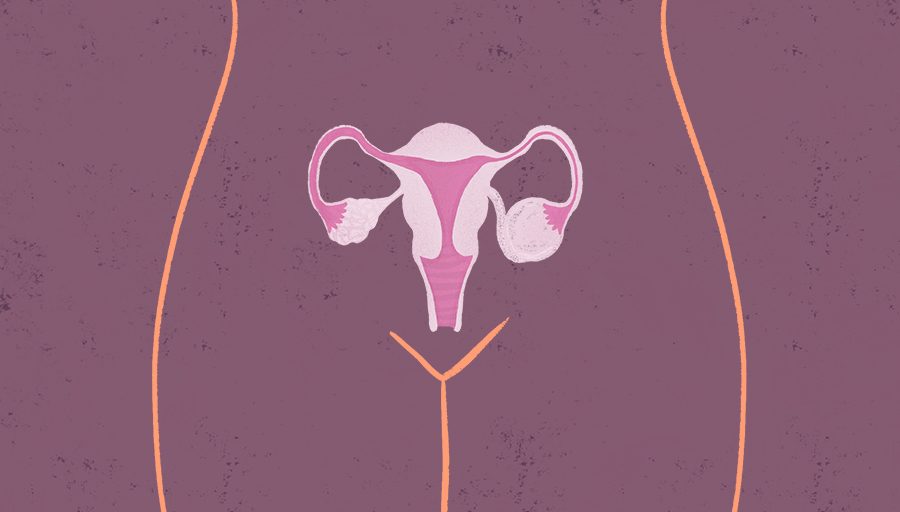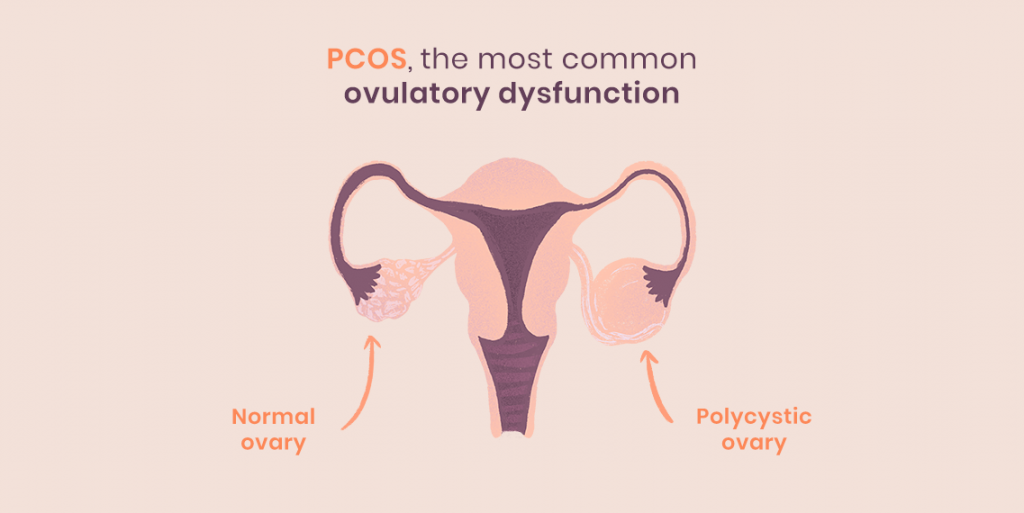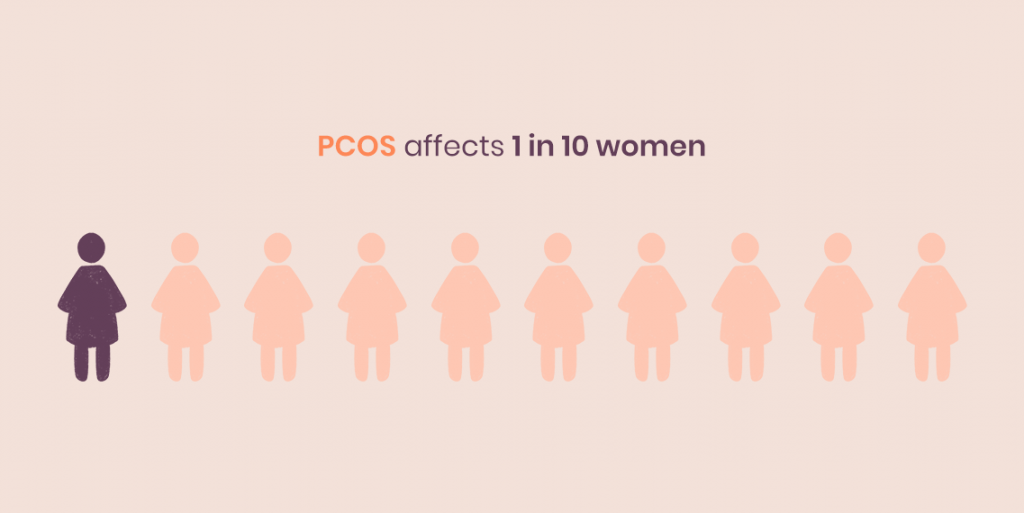
What is PCOS?
Polycystic Ovary Syndrome (PCOS) is a common hormonal condition that affects 5% to 10% of women of reproductive age. It is characterized by a set of symptoms, although not all women with PCOS necessarily exhibit the same manifestations. The diagnosis of PCOS is based on the presence of at least two of the following three criteria: (1) irregular or absent menstrual cycles (oligo-anovulation), (2) clinical or biochemical signs of hyperandrogenism (increased hair growth, acne, elevated levels of androgens in the blood), and (3) the presence of ovaries that, on ultrasound, show an increased volume or contain more follicles than normal (20 follicles or more in at least one ovary).

Ovarian cysts in the context of PCOS are not pathological cysts but rather small physiological antral follicles, more numerous than usual. Each follicle contains an egg, but in PCOS, these follicles generally do not reach full maturity and often remain underdeveloped. They appear on ultrasound as small ring-like cavities around the ovaries. It is crucial to note that contrary to common belief, these structures are not atypical ovarian cysts.
Symptoms reported by women with PCOS may include menstrual cycles longer than 35 days, acne, excessive hair growth (hirsutism) in typically male-pattern areas, as well as infertility issues. It is relevant to emphasize that acanthosis nigricans, thick and pigmented patches on the skin, is associated with insulin resistance that can coexist with PCOS, although it is not a diagnostic criterion. The same applies to obesity and diabetes, which can sometimes coexist with PCOS.
How can it be diagnosed?
When examining the hormonal status, elevated levels of anti-Müllerian hormone (AMH) and testosterone can be observed. However, it is essential to note that these indicators are not specific to PCOS and can vary from person to person.
For an accurate diagnosis, it is imperative to conduct a thorough evaluation of the symptoms, a meticulous physical examination, an endovaginal ultrasound to visualize the ovaries clearly, and specific hormonal tests. It should be noted that PCOS is a clinical diagnosis, and other similar medical conditions must be distinguished from it.
What are the risks for women with PCOS?
Some of the risks are related to the fact that a woman does not ovulate regularly. When ovulation does not occur, it disrupts the usual hormonal cycle and leads to elevated estrogen levels, which can thicken the uterine lining and cause abnormal bleeding. Over time, this can result in precancerous changes or uterine cancer. This lack of regular ovulation can also make pregnancy difficult.
Metabolic syndrome is common in women with PCOS. Symptoms include overweight, high cholesterol levels, high blood pressure, and insulin resistance/diabetes. Each of these symptoms increases the risk of heart disease. Obesity is common among women with PCOS.
How is infertility in women with PCOS treated?
The best and simplest solution, if a woman is overweight, is to lose weight. This can help improve the frequency of ovulation and fertility. Sometimes, a 10% weight loss (through diet and exercise) can help normalize menstrual cycles. Even if oligo-ovulation persists (rare or irregular ovulation), the person will be more responsive to the effects of medications.
Inducing ovulation using medications is one of the treatment options for infertility. Clomiphene citrate is taken orally and is generally used as the first potential solution. Letrozole is another oral medication that may be recommended as a first-line treatment. In case of failure, injectable fertility medications called gonadotropins may be administered to stimulate egg growth. Women with PCOS should be closely monitored when using these medications to ensure they do not respond excessively, which can increase the risk of multiple births.
Insulin-sensitizing medications such as Metformin can help the body use insulin more effectively to improve ovulation in some patients with PCOS. Metformin can also reduce the risk of developing diabetes or metabolic syndrome.
In vitro fertilization (IVF) can help women with PCOS become pregnant if other treatments are not successful.
Do you have PCOS and would like to have children?

Discuss with our nurses to find the best approach for you at (450) 934-9146.
Publish on: September 17 2023 in Fertilité | Infertilité | Procréation

Dr. Pierre Miron is renowned internationally in the field of fertility, reproduction and medically assisted procreation. A visionary, he founded three In Vitro Fertilization programs in Quebec over the past 30 years. Thanks to his private center of human genetics which specializes in the field of reproduction, he has made a unique prenatal screening program for Down's Syndrome accessible to all pregnant women - a service previously not available in Quebec.
Dr. Miron has always been actively and publicly involved in helping the cause of infertile couples. He notably helped launch the Quebec Infertility Association (ACIQ).